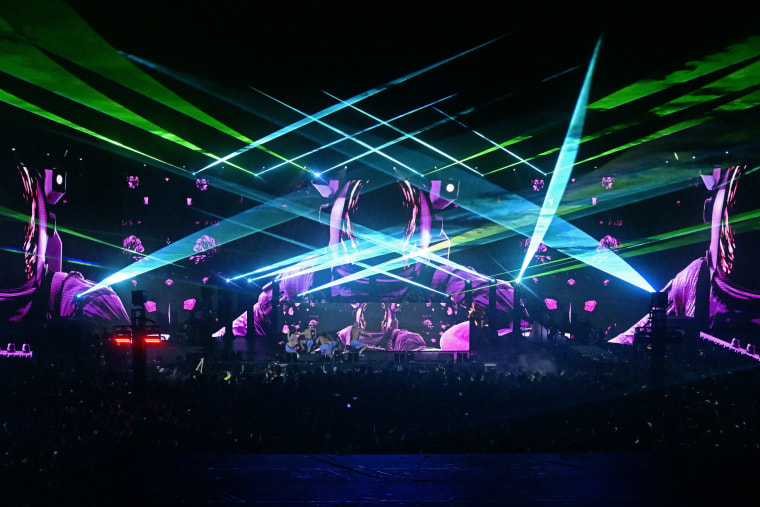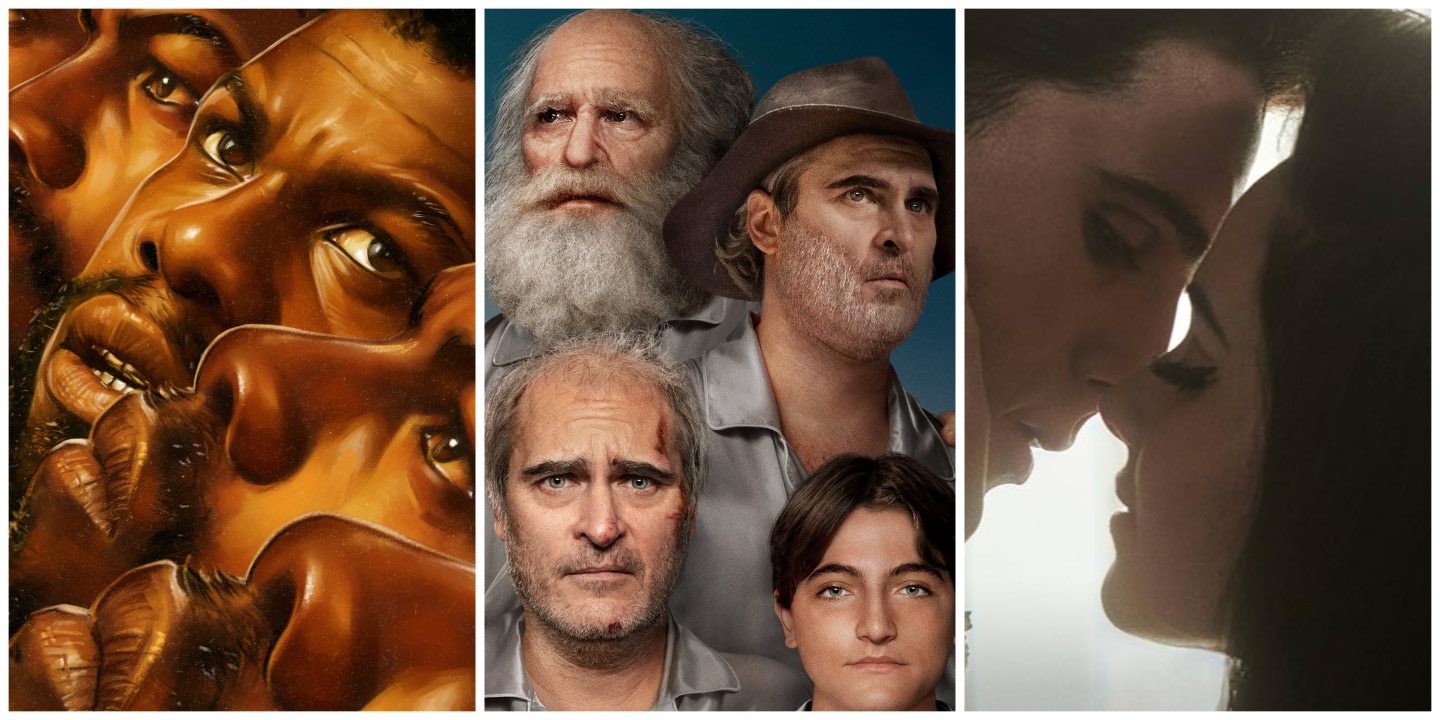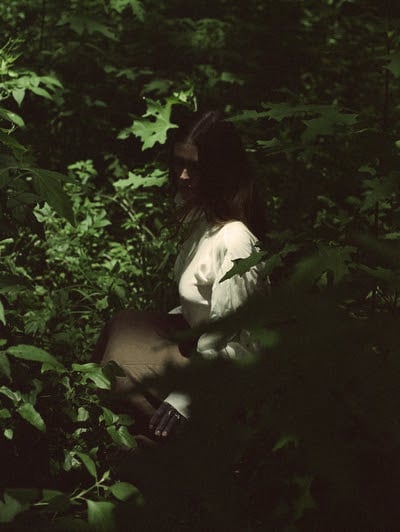“Being at the Empire State Building in person is different — I’ve only ever seen it in movies,” BIBI tells me on a blazingly hot and humid Wednesday in July. The South Korean singer is midway through her first-ever world tour and arrived in New York City earlier this week to perform on the Today show. She has two more days left in town and she’s squeezing in a fan meeting at a K-pop album store in Koreatown later, but this morning, BIBI decided she wanted to take a tour of the city’s most famous historic landmark. When we meet in a room on the building’s ground floor, the 26-year-old greets me with a hug before relaxing into her chair. Marked underneath her right eye are two red dots in honor of her late grandfather, symbols that she’s said represent calmness and control.
BIBI, born Kim Hyung-seo in Ulsan, South Korea, confesses a few things just minutes into our chat: First, that she was initially nervous about hitting the road for five long months, which makes sense. It’s the longest she’s ever been abroad, and what happens if she falls sick, people don’t show up to her shows, or worse, she can’t easily access quality kimchi? Since then, her worries have been assuaged by the outpouring of support and fans packing each venue. She’s been awed by everyone’s widespread backgrounds (from “NASA interns” to “Tinder employees”), and their willingness to participate in lap dances and risqué interactive audience banter. The crowds have shown BIBI a different kind of energy than she’s used to back home. “I’m everywhere in Seoul — I’m in the club,” she tells The FADER. “Everybody will think, ‘Oh, if I can’t see BIBI this time, I can just go to her show next year,’ but it’s been the opposite everywhere I’ve been. People are eager to come and see me perform.”


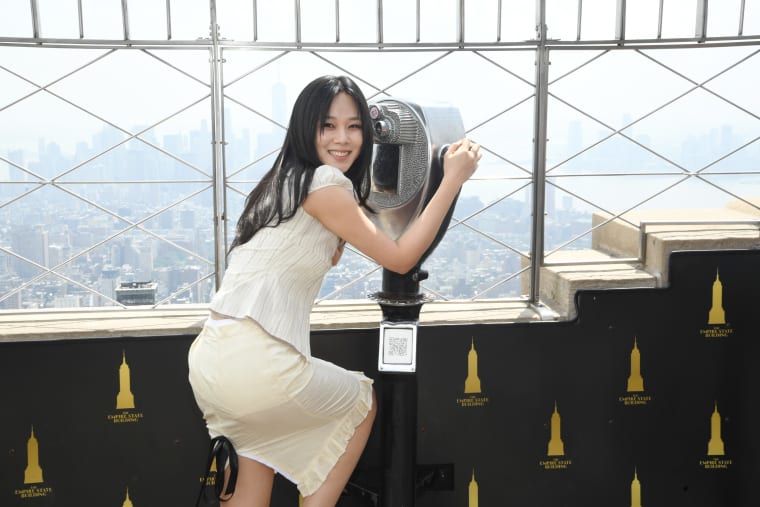
To understand BIBI’s ascent to global stardom is to see a singer on the outskirts of K-pop gently pushing at its borders. Her candor, especially in her lyricism, bulldozes over the glossy images and polished pop songs associated with her more mainstream counterparts. On songs, like “Derre,” a bubbly same-sex anthem, she questions societal norms and probes at topics that often go untouched in the K-pop mainstream. Her explorations often manifest in explicit videos like the blood-filled 2023 visual for “Animal Farm,” in which a man-slaying BIBI, who begins bound up like a suckling pig on a table, speaks on female objectification and defends her femininity with a Katana sword in hand.
BIBI landed a record deal at 19 years old with Feel Ghood Music, a South Korean entertainment label founded by two industry rap veterans, Yoon Mi-rae and Tiger JK, after being discovered through self-produced songs on SoundCloud and snagging second place in the South Korean competition show The Fan in 2018. Eight years later, BIBI’s witty personality and her rebellious storytelling have cultivated a large audience, especially in the States: she went viral in 2021 for kissing fans and throwing condoms into the crowd at Head in the Clouds; she played Coachella in 2024 as part of 88rising’s set; her 2021 R&B pop track “The Weekend” charted on U.S. top 40 radio. Today, BIBI tells me she wants to peel back even more of her layers, though embracing vulnerability has been a challenge. Her music is often filtered through high-octane album concepts and fictional characters, obfuscating tools that served a purpose: “It’s out of fear that people will know everything about me.”
BIBI’s sophomore concept album Eve: Romance is her way of bringing her walls back down to ground zero. The 14-track album is told through a vivid sci-fi narrative that follows Luca, a resurrected genius child, and EVE-1, the clone of a deceased pop star named Eve. The album weaves concepts of resurrection, identity, and free will, and is split into two halves: seven songs from EVE’s perspective and the rest from EVE-1’s. Eve’s perspective is told through soft songs like “Midnight Cruise” and her 2024 smash hit “Bam Yang Gang,” while EVE-1’s outlook is more audacious via “Hongdae R&B” and “Sugar Rush.”
“It’s out of fear that people will know everything about me.”
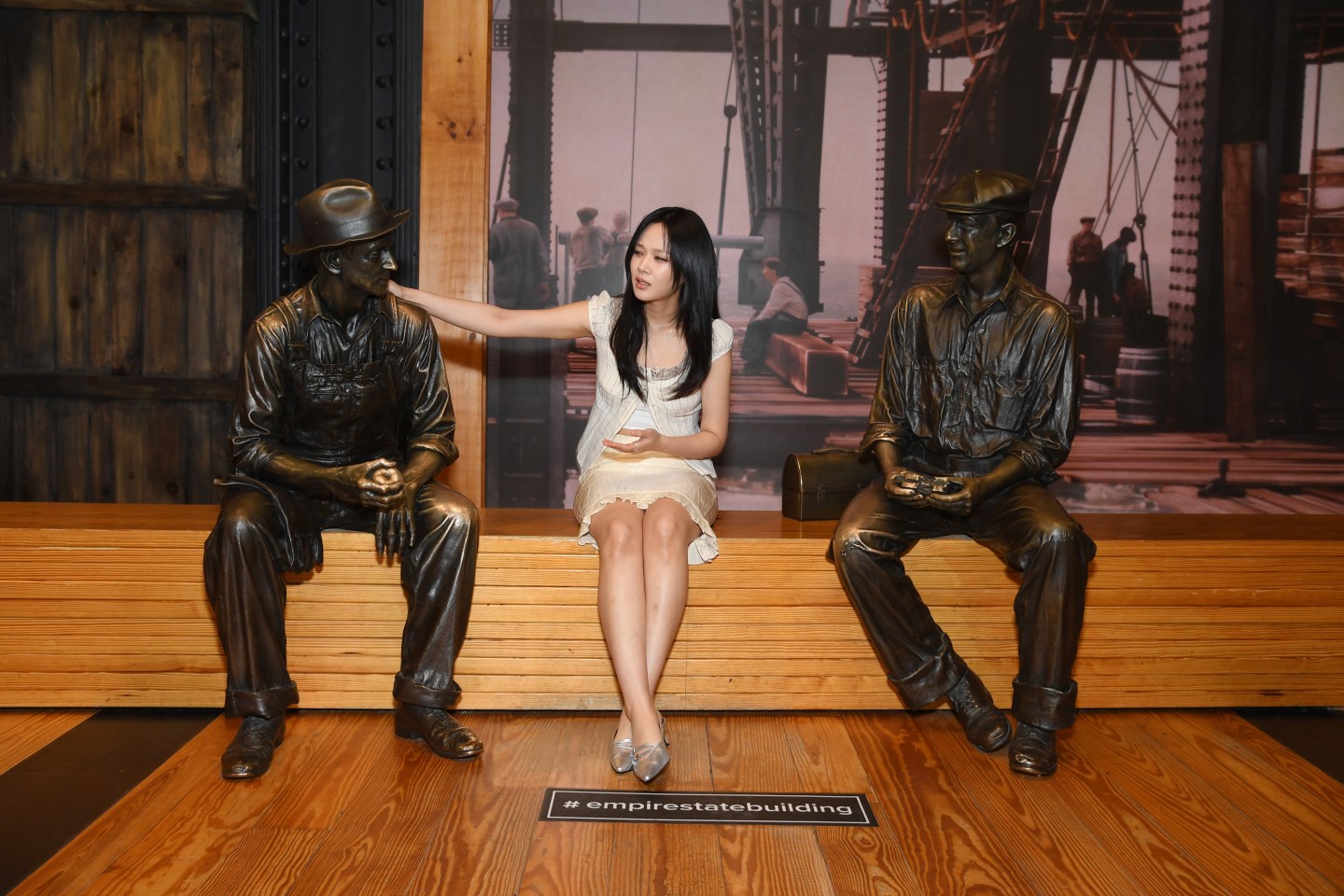
As fantastical and otherworldly as the album’s concept is, the project is really a mental spiral down the consequences of fame and societal pressures. On every track, BIBI returns to a central point: a desire to be loved, and the many adversities that stem from that. “Through this story, I wanted to share that there are a lot of expectations people often have of you. I’m always thinking that I have to be something to be loved,” she says. “But sometimes this love eats away at me. The people in my life love me, but I often feel that I have to provide something to them to be loved, like transactional love.”
BIBI portrays the great (and not so great) parts about desire through ambiguous innuendos cushioned in biblical references and Greek mythology. On “Scott and Zelda,” she writes about a one-sided romance that still clings to hope: “Would you pinch me? / Would you turn my page? Would you read me? / Don’t return me and lose me forever.” “When I wrote this story, I couldn’t come up with a bad ending,” BIBI adds. “I think Eve and EVE-1 are me. Whether I wrote it as a happily ever after or not, I knew I wanted this story to live on just like how I’d want mine to as well.”
Eve: Romance is a reflection of BIBI’s life, though she only arrives at that conclusion after much talk around in our discussion, as if she’s still trying to grapple with how much of herself she put into the music.
BIBI grew up in a busy family with a musician father and poet grandmother who were deeply embedded in their careers. She says she felt isolated during her upbringing, finding it difficult to cultivate friendships. She muses that her tendency to explore existential concepts in her music stems from her childhood search for love. “When I was little, I had a toxic way of loving myself and others,” she says. “I didn’t understand what love was, and I thought it was useless. I thought life was always bleak, and I didn’t want to live.” It wasn’t until she turned 18 that she realized not everyone perceived love, or life, in this way. “There are so many people who are worse off and still find happiness, and I wondered why I couldn’t. I thought that I was allergic to this life, and that I’d be better off cloning myself to live a better one.”
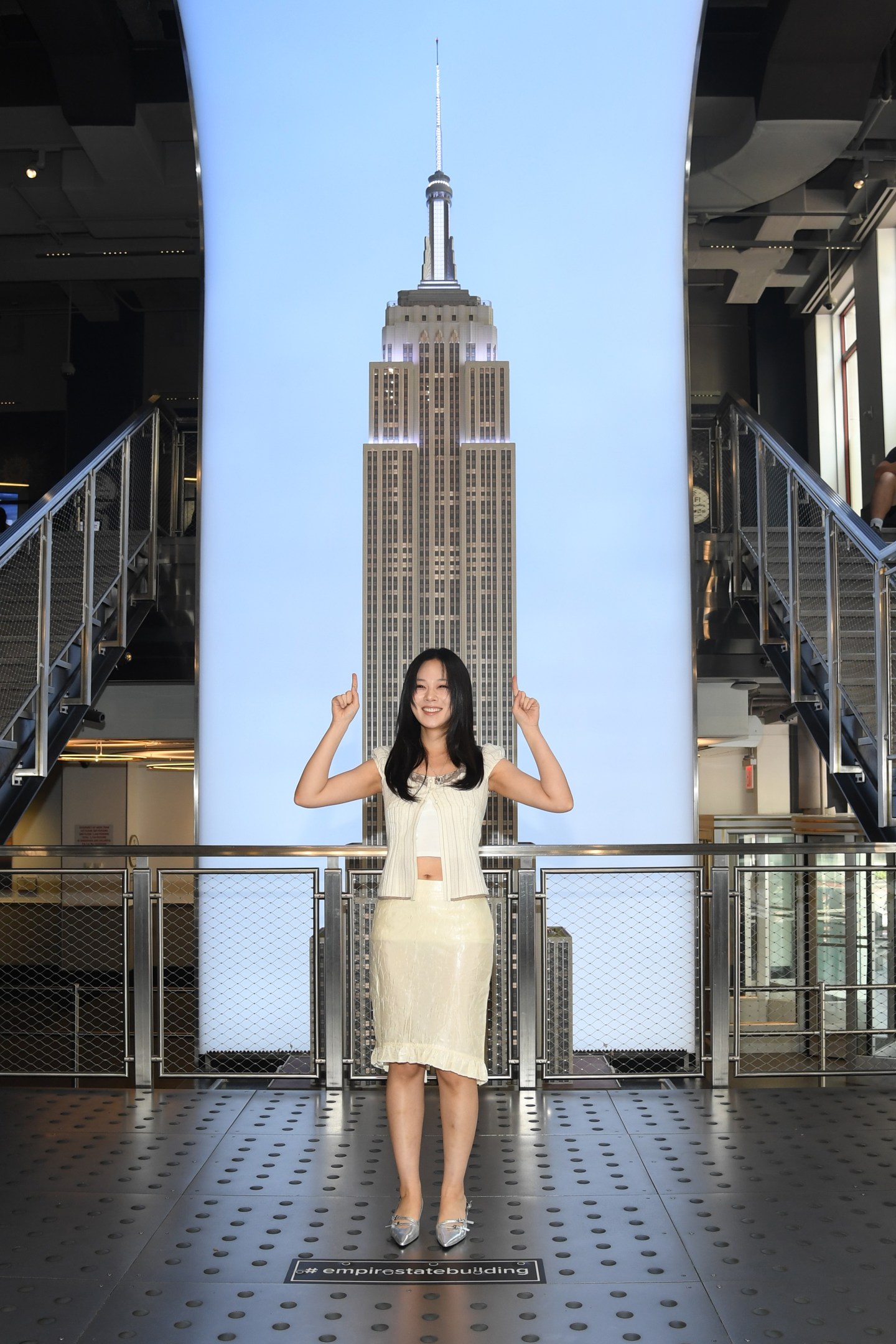
“The people in my life love me, but I often feel that I have to provide something to them to be loved.”
Compared to that time, when she struggled to comprehend her “ball of trauma,” BIBI says she’s much better off now, thanks to therapy sessions that have helped reconstruct her views on unconditional love. When asked what she learned over the years, she holds her fingers to her temples as if trying to recite a math equation from memory: “I once told my therapist that, ‘I know that people love me, but for some reason, I can’t fucking touch it.’ And he said, ‘Why do you think you love them unconditionally and they don’t love you unconditionally?’ That was the moment I realized I never thought of it in that way because it’s always been about me, me, me.”
Going forward, BIBI wants to focus on making bodies of work that are not contingent on virality (“I never cared to go viral, to be honest.”), and represents her as Kim Hyung-seo — which means she may or may not be ditching the characters and narrative concept for good. “I think my story era is done,” she says. “It’s been years since my debut, and I think I’m brave enough to showcase myself. No more hiding.”

All photos courtesy of BIBI.


